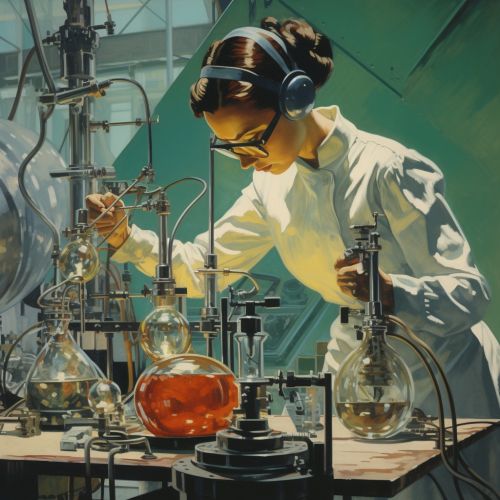Experiments
Introduction
Experiments are a fundamental part of the scientific method, a systematic approach used to investigate phenomena, acquire new knowledge, or correct and integrate previous knowledge. They are designed to test hypotheses and establish causality in a controlled environment, allowing for the manipulation of one or more variables while keeping others constant.


History of Experiments
The concept of conducting experiments dates back to ancient civilizations, where early scientists and philosophers used rudimentary experimental methods to understand the natural world. However, the formalization of experimental methods is largely attributed to the work of Francis Bacon and Robert Boyle in the 17th century, during the Scientific Revolution.
Types of Experiments
Experiments can be broadly classified into two types: controlled experiments and natural experiments. Controlled experiments involve the manipulation of variables in a controlled environment, while natural experiments involve observing and analyzing variations that occur naturally.
Controlled Experiments
Controlled experiments are the most common type of experiment in fields such as physics, chemistry, and biology. These experiments involve the manipulation of one or more independent variables and the observation of the effect on a dependent variable, while keeping all other variables constant.
Natural Experiments
Natural experiments, on the other hand, are observational studies that take advantage of naturally occurring circumstances in which different conditions of an independent variable are found among groups or individuals. These types of experiments are often used in fields such as economics, epidemiology, and social sciences.
Design of Experiments
The design of experiments (DoE) is a systematic method to determine the relationship between factors affecting a process and the output of that process. It involves a series of steps, including defining the problem, selecting the input variables, determining the level of manipulation, choosing the form of randomization, and analyzing the data.
Experimental Errors
Errors in experiments can be classified into two types: systematic errors and random errors. Systematic errors are consistent, repeatable errors associated with faulty equipment or biased procedures, while random errors are statistical fluctuations that are equally likely to be in either direction.
Ethical Considerations
Ethical considerations are paramount when conducting experiments, particularly those involving human subjects or animals. Researchers must adhere to ethical guidelines and principles, such as informed consent, confidentiality, and minimization of harm.
Conclusion
Experiments are a critical tool in the advancement of scientific knowledge. They provide a systematic way to test hypotheses, validate theories, and discover new phenomena. However, they must be designed and conducted with care to ensure accuracy, reliability, and ethical integrity.
